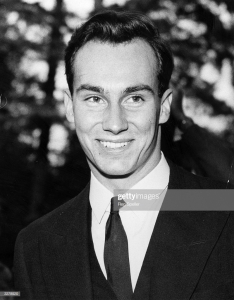S620500 ROYAL COMMONWEALTH SOCIETY CAMBRIDGE UNIVERSITY: AFRICA AND THE COMMONWEALTH-1962-05-14
"Very few modern African leaders fail to recognise the advantages of continued association with the Commonwealth or in the case of the former French African territories with the French Community. The Commonwealth may well become one of the principal means of fulfilling the very justifiable ambition of nearly all African leaders to remain outside the cold war."
Continuing He said: "It provides a kind of umbrella - smaller and therefore, less unwieldily than the United Nations beneath which the emergent nations of Africa can develop their own identities with the minimum risk of outside interference, and the assurance of friendly assistance when they really need it."
His Royal Highness mentioned that it was the political implications of the European Common Market which would give rise to the most difficult problems so far as Africa was concerned. No one would deny that Britain was able to join the Common Market and at the same time preserve at least the framework of existing trade links with Africa. He went on: "In the political sphere, however self-interest in trade may well conflict with the Africans'desire to create their own national personality - a personality which will almost certainly wish to remain neutral in the cold war. Through colonial rule, whether it be British, French, Italian, Belgian, Portuguese or Spanish most African countries have come into contact with Western ideologies and Western lines of human conduct.
Few could deny that these lines of thought had already affected the mental makeup of most African politicians, but nonetheless they are going to have to steer a careful course so as to maintain their political neutrality and in this neutrality create their own national personality. Africa would have to accept assistance when it was freely and honourable offered from any source. But, she may well discover more comfortable and more understanding partners in Europe than in either of the two huge power blocs of East and West."
Discussing the Pan-African idea, His Royal Highness said, "In theory, at least, there is nothing to prevent a huge new world power, the United States of Africa emerging before the end of the century. But in practice of course, the obstacles are very considerable. Africa today is only just emerging from the chrysalis of colonialism. Young nation-states whose boundaries were determined by the notorious scramble for Africa at the end of the last century are now being launched upon the world at breath taking speed as sovereign members of the United Nations. In the last 15 years more than two-thirds of what was once African colonial territory has been reborn into independence."
His Royal Highness Prince Aga Khan declared, "A continent which in sheer size equals the United States, Western Europe, China and India put together is awakening from the slumber of centuries. Two hundred million people speaking at least 700 different languages, divided literally into thousands of different tribal entities are groping, reaching, grasping for a brave new world. What the shape of this world will be, even the most sophisticated African has, as yet, only the haziest idea. But certainly it will be a world where the old indignities can be forgotten and the dead weight of poverty, hunger and ignorance can be lifted."
"Only if the better-off members of the Commonwealth understood the measure of Africa's potential and the enormous effort which would be required to develop it, could they begin to understand both the urgency of the task and how they could help in it," concluded His Royal Highness.
- 6597 reads
 Ismaili.NET - Heritage F.I.E.L.D.
Ismaili.NET - Heritage F.I.E.L.D.